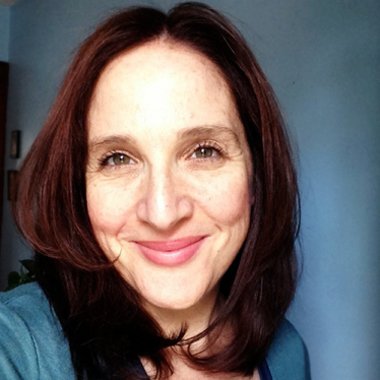
We are so grateful to our interviewees, guest co-host, and sound engineer for sharing their insights, wisdom, and expertise with us!
We look forward to learning from others as we prepare new episodes for Persistent and Pervasive and hope that you will continue to be an active listener!
Contributing Voices
-

Isabelle Chaudry
Episode 4 — The Beast in Beauty: Toxic Chemicals in Hair Straighteners
Marcha Isabelle Chaudry is a Senior Policy Analyst with the Center for Progressive Reform. Prior to joining CPR, Ms. Chaudry served as a Senior Policy Manager with the National Women’s Health Network, where she developed and led their consumer safety policy efforts, with a particular focus on toxic chemicals in cosmetics and their impact on historically marginalized communities.
-

Daniela Contreras
Episode 3 — Advocating for Safe and Just Cleaning
Daniela Contreras is a full-time organizer for the National Domestic Workers Alliance. She immigrated to New York from Mexico and has worked on-and-off as a domestic worker for 20 years. She has worked on projects with Ai Jen-Poo, the Executive Director of the NDWA, and has been written up in Refinery29, a feminist digital media and entertainment website focused on young women.
-

Pam Eliason
Episode 3 — Advocating for Safe and Just Cleaning
Pam Eliason is the Senior Associate Director at the Toxics Use Reduction Institute at the University of Massachusetts Lowell. She assesses and promotes the adoption of safer alternatives to toxic chemicals used in Massachusetts and around the world, and disseminates information on examples of successful implementation of cleaner technologies in industry.
-

Heloisa Galvão
Episode 3 — Advocating for Safe and Just Cleaning
Heloisa Maria Galvão is the executive director of the Brazilian Women’s Group, which created the Vida Verde Women’s Cooperative. Vida Verde’s mission is to support Brazilian housecleaners in their professions while creating community and promoting healthy and environmentally friendly methods. Co-op members use non-toxic products and teach others about how to switch to green cleaning products.
-

Jennifer Guglielmo
Episode 2 — Cleaning: A Stained Industry
Dr. Jennifer Guglielmo is an award-winning author, teacher, and public historian at Smith College. She specializes in the histories of labor, race, women, migration and revolutionary social movements in the late 19th- and 20th-century United States. Dr. Guglielmo recently co-directed a community-based public history/digital humanities project with the National Domestic Workers Alliance and Dr. Michelle Joffroy.
-

Michelle Joffroy
Episode 2 — Cleaning: A Stained Industry and Episode 3 — Advocating for Safe and Just Cleaning
Dr. Michelle Joffroy specializes in cultural and literary studies of Latin America and the Latino/a U.S. at Smith College with an interest in critical digital humanities and cultural production at the intersections of transnational feminist, labor, indigenous and ecological social movements. Dr. Joffroy recently co-directed a collaborative, community-based digital humanities public history project with the National Domestic Workers Alliance and Dr. Jennifer Guglielmo.
-

Jamie McConnell
Episode 1 — Toxic menstrual and intimate care products are wrong. Period.
Jamie McConnell is deputy director and oversees Women’s Voices for the Earth’s programmatic work. In addition, she devises policy strategies on the state and federal level that will increase disclosure of ingredients and reduce the use of harmful chemicals in consumer and salon products. She is a co-convener of the National Healthy Nail and Beauty Salon Alliance and a former steering committee member of the Campaign for Safe Cosmetics and Montana Women Vote.
-

Jamie San Andres
VISITING CO-HOST
Episode 2 — Cleaning: A Stained Industry and Episode 3 — Advocating for Safe and Just CleaningJamie San Andres was a wonderful co-host for our Cleaning Products and Domestic Workers podcast mini-series. She is the Program Manager for Latin America at Thousand Currents. She is a daughter of Ecuadorian immigrants of Wankavilca and Andean descent, with over 10 years of experience in research, activism, and cultural organizing. Jamie grew up in California’s San Joaquin Valley, home to a large farming industry that relies heavily on pesticide use.
-

Alex Scranton
Episode 1 - Toxic menstrual and intimate care products are wrong. Period. and Episode 2 - Cleaning: A Stained Industry
Alex Scranton is the longtime Director of Science and Research at Women’s Voices for the Earth. Alex authors scientific reports and provides scientific review for the organization’s programs. She currently sits on the Research Advisory Committee for the California Healthy Nail Salon Collaborative and on the Institutional Biosafety Committee for Rocky Mountain Laboratories.
-

Steve Thomas
SOUND ENGINEER/DESIGNER
Steve Thomas is a music industry veteran and multifaceted musician. He has worked with myriad industry leading consumer and music technology companies and software creators. As audio/production consultant and composer, he provides production services and music for artists, institutions, and creatives working in TV, film, and all forms of media. Steve enjoys applying his skill set to bring voice to art and education projects that are out to do good in the world. -

Astrid Williams
Episode 4 — The Beast in Beauty: Toxic Chemicals in Hair Straighteners
Dr. Astrid Williams is the Environmental Justice Program Manager with Black Women for Wellness. Her background spans the fields of chronic disease, maternal and reproductive health. She is most passionate about women's issues and their connection to health. She serves as faculty in higher learning, teaching the next generation of healthcare leaders.
-

Ami Zota
Episode 1 — Toxic menstrual and intimate care products are wrong. Period.
Dr. Ami Zota is an Associate Professor in the Department of Environmental Health Sciences at the Columbia Mailman School of Public Health. Dr. Zota seeks to secure environmental justice and improve health equity through advancements in science, policy, and clinical practice. Her research identifies novel pathways linking social disparities, environmental exposures, and reproductive and children’s health.
